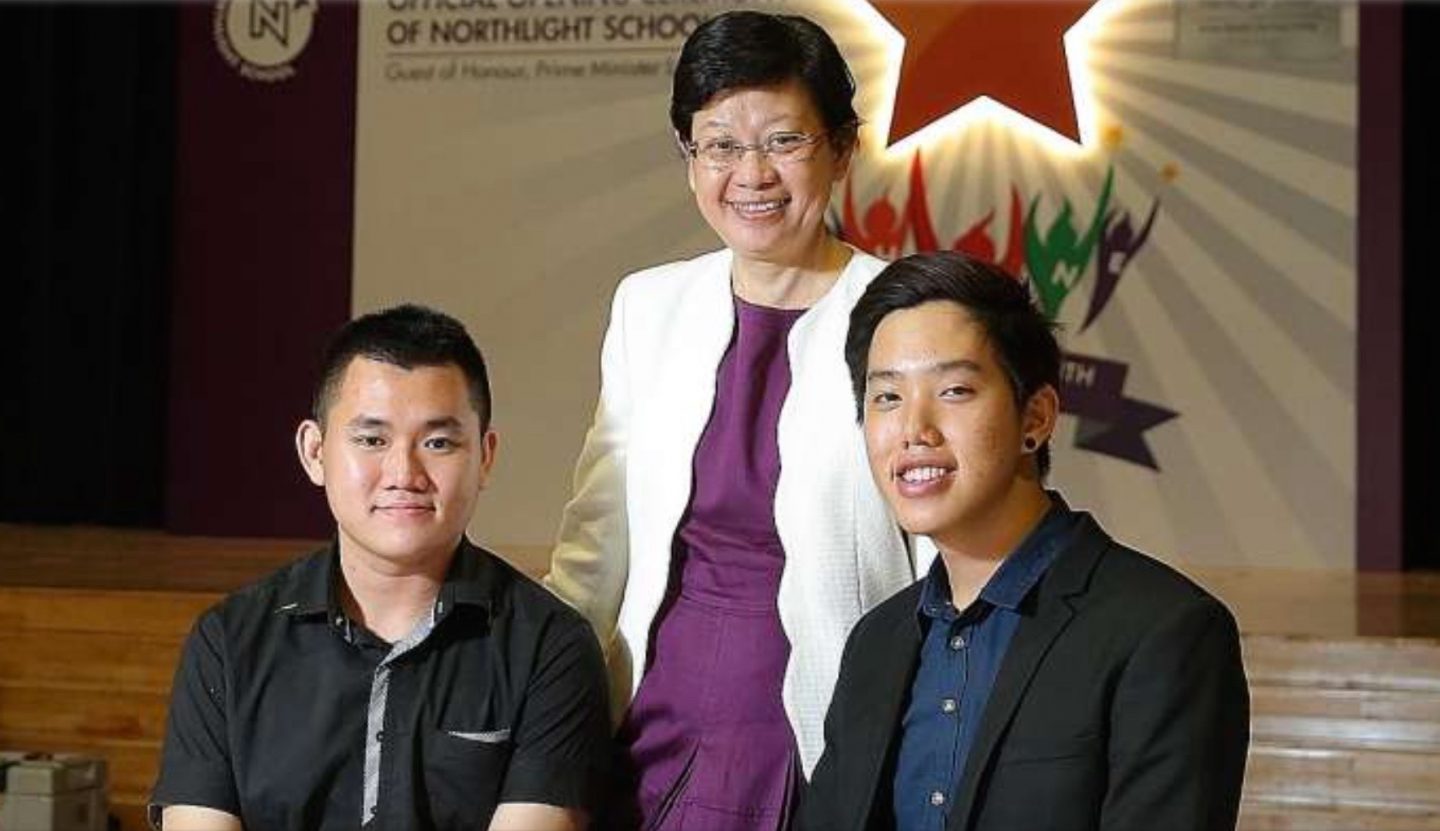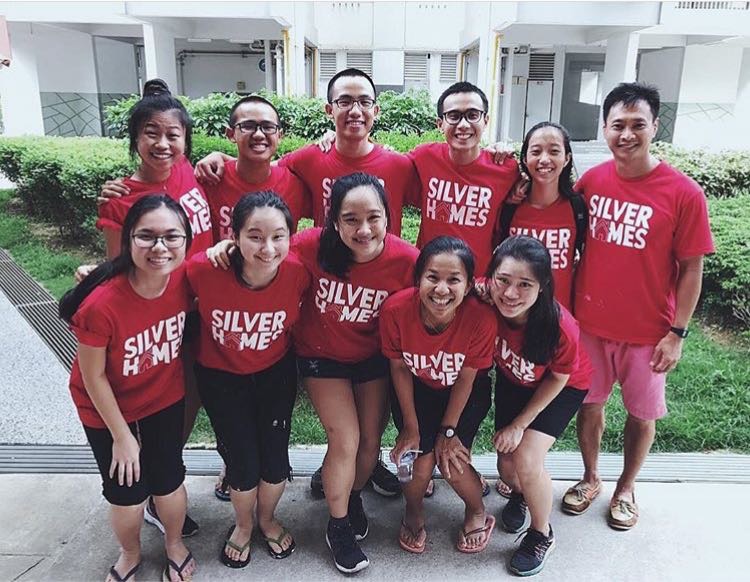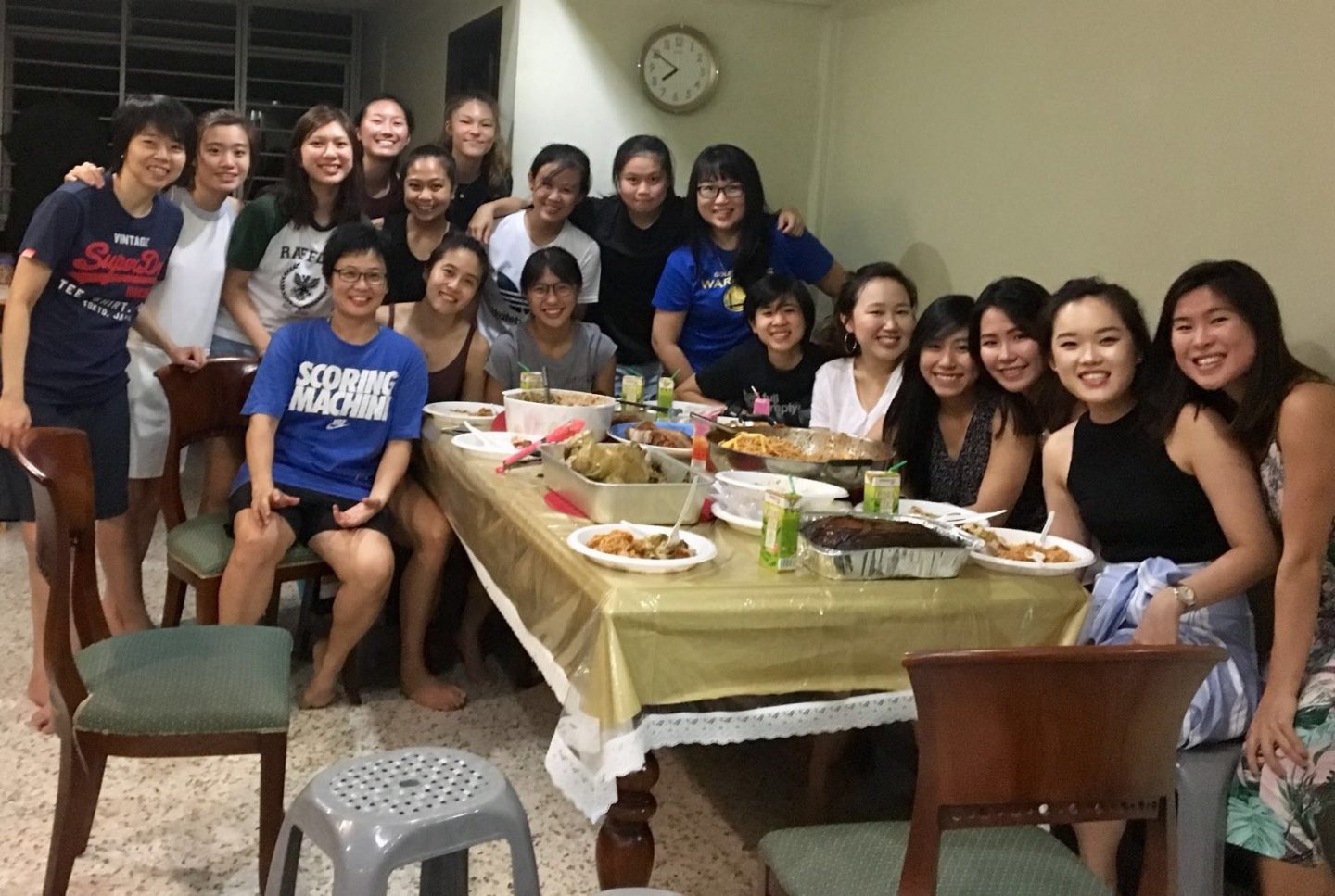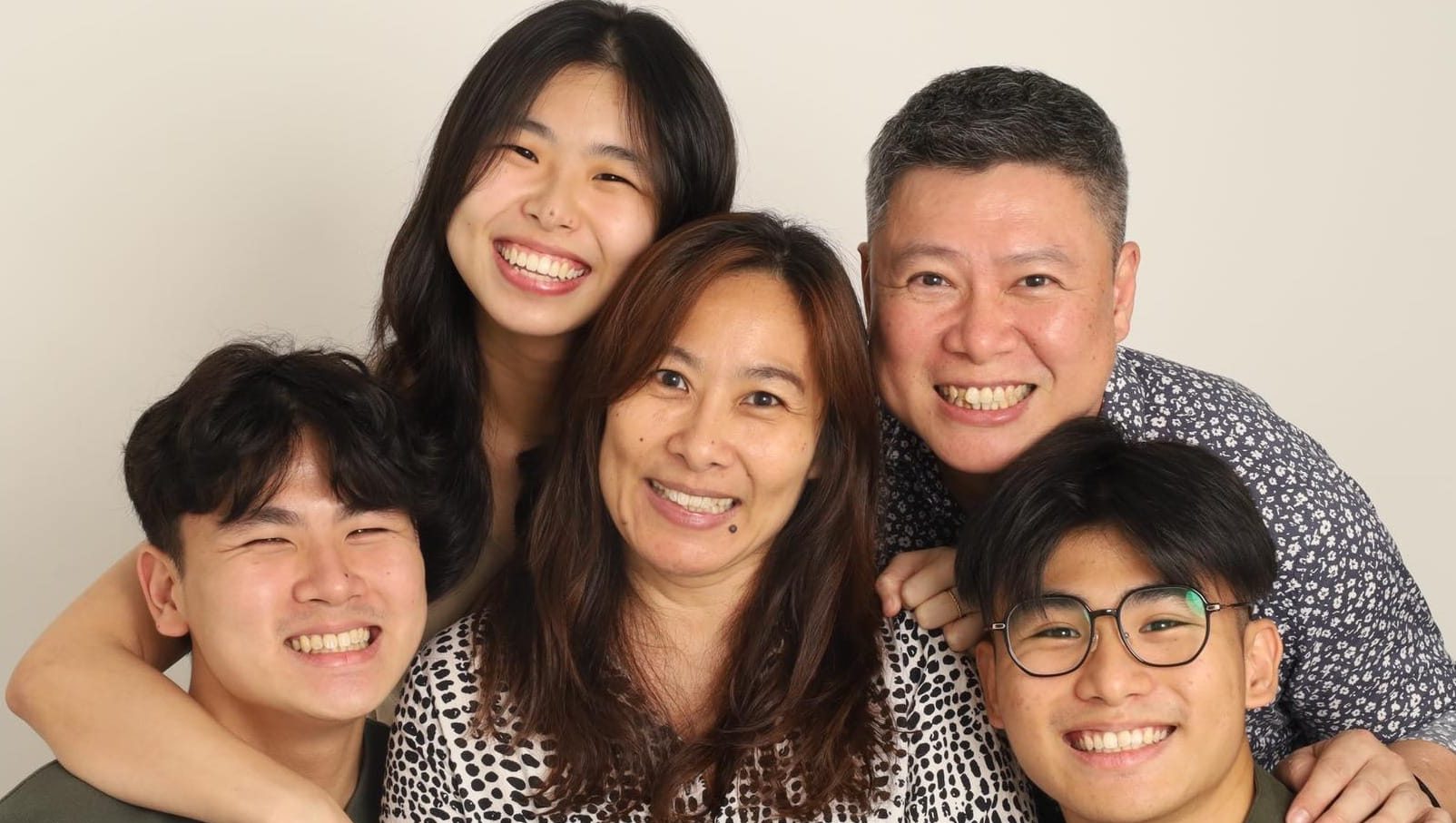
Photo by Larm Rmah on Unsplash
When a struggling NorthLight School student failed to show up for classes, his form teacher visited his home 12 times, bearing his favourite McDonald’s meal at each visit.
But the boy was too ashamed to return.
Undeterred, the teacher told his principal: “Let me visit him a few more times.”
After the 14th visit, the boy returned to school, won over by the teacher’s persistence and belief in him. He went on to graduate with a perfect grade point average of 4.0.
The source of the teacher’s persistence? “I lived in a one-room flat myself for 12 years. I can identify with the student’s struggles and adversities,” he said simply.
This is just one of the many moving stories that have come out of the corridors of NorthLight School (NLS), a unique educational institution in Singapore where Primary School Leaving Exam (PSLE) failures have a chance to turn their lives around.
One educator, after volunteering in the school and witnessing the work of the teachers, pronounced that the system “didn’t make sense”.
Mr Chia Hai Siang, vice principal (instructional programme) from 2009 to 2012, agreed. In NorthLight’s 10th anniversary book, Empowering Youth for a Future, he noted that indeed it “didn’t make sense” to invest money, time and effort to “save the last starfish”, especially when there was no guarantee that these students would turn out well.
“But I learnt in NorthLight that this was a place where children needed someone to hold on to them in faith and hope in spite of reason and contrarian evidence, and even when they themselves had abandoned all hope,” he said.
Culture of care
The extraordinary culture of care in the secular school was nurtured from the very beginning, and is widely attributed to its founding principal, Mrs Chua-Lim Yen Ching, 59.
“The kids who come to the school have all kinds of challenges, so we have to use a different approach to mentor them. Our goal is not just paper qualifications – though they do work towards an ITE skills certificate – it is to give them confidence and an opportunity for gainful employment, to allow them to be good contributing citizens.”
Her clutch of dedicated pioneering teachers came up with the idea of using CCTVs to record and reward honesty and good manners, in other words, “catch the students doing right” rather than wrong. Vandalism fell as a result.
Failure – a familiar feature in these children’s lives – was destigmatised. The teachers encouraged the children to read “Impossible” as “I’m possible”.

Mrs Chua-Lim Yen Ching with NorthLight School graduates
When Lydia Ang, a student suffering from the effects of hydrocephalus meningitis, shared a wistful dream of performing solo (she loved to sing), the teachers not only made her dream come true at a Mensa anniversary dinner, her music teacher even bought her a dress.
It was no accident that these sacrificial teachers gathered at NorthLight. Mrs Chua hired her teachers judiciously, believing that “passion alone is not enough”. Most of them were first put on attachment to ensure that they “can take it”.
“I tell them: ‘You are going to be discouraged and you must have resilience’,” said Mrs Chua, who looked for compassion, competence and calling in the team she hired.
Even after the students graduated and went on to jobs in retail, F&B, security and mechanics, the teachers continued to keep in touch, paying them visits to affirm and encourage them.
Mrs Chua, a Christian, had been advised by concerned friends and family against taking on the role at NorthLight – it was a tough mission.
But naysayers overlooked one small detail. Mrs Chua had a strong personal philosophy that said: If your internal GPS tells you to do something, do it. Have the courage and conviction to follow your calling.
Faith that works
Something happens when we bring our faith to work.
In education, where young lives are open and vulnerable to influence, this is especially clear.
“I am able to love because He first loved us. This serves as a constant reminder to me to listen to my students first, not to judge them. To show them that I am interested in their lives, not what they can do.”
No matter how many years have passed, we all remember that one teacher who slipped in a kind word in our moment of failure (and conversely the one who ridiculed us when we most needed guidance). And, of course, all the ones who bought us treats, gave us extra coaching, boisterously cheered us on at competitions and thrashed us at soccer during recess.
Mr Chew Hiap Iuh, 41, a polytechnic teacher, makes it a point to share with students his past mistakes and struggles.
“I want them to realise that we are not much different after all, and I accept them for who they are. They do not need to earn my acceptance,” he said.
“For a start, I think God has shaped my personal life to be a testimony to my students. Most of the time, I am able to relate to their difficulties and share my life’s experience as an encouragement to them.
“God reminds me that we are all a work in progress and He loves us unconditionally. I am able to love because He first loved us. 1 John 4:19 This serves as a constant reminder to me to listen to my students first, not to judge them. To show them that I am interested in their lives, not what they can do.”
Cherie Poon, 19, a former junior college student of Mr Chew’s, remembers him as someone who “exuded a lot of love, care and concern towards his students, and it was deeply representative of his faith.
“I remember a conversation I had with Mr Chew, where we talked about our families and challenges we faced. It was evident that Mr Chew cared for us and saw beyond us as students. He has a wonderfully gifted heart that is reflective of the Father’s love.”

Mr Chew Hiap Iuh (in hat) on a mountain trekking expedition with his students
Summiting the mountain
Mr Kuak Nam Jin, 46, who over his 12 years as an educator has led seven mountain trekking trips with his junior college students as part of a leadership programme, believes that the roles of teacher and learner are interchangeable.
“When a teacher is reflective and inclusive, students are willing to teach the teacher in return. In my own experience, my children have taught and helped me become a better man, father, husband, as well as educator,” he said.
“A teacher will never know everything and this is particularly true when it comes to real-world problem solving or serving the community. When a teacher is able to learn alongside his students, the power distance narrows, communication improves, discourse takes on a new level and learning becomes authentic.”
He spends a year preparing his students for each mountain expedition, journeying alongside them every step of the way.
“To capture our students’ minds, we must first capture their hearts and imagination. When this happens, teaching becomes transformational,” he said.

Mr Kuak Nam Jin (far right) on a community house-cleaning project with his students
For Freda Mah, 19, one of Mr Kuak’s students, the mountain trek saw her turn a corner in her life.
“Mr Kuak’s advice and teachings still echo in the back of my mind whenever I face challenges in life, and he played a great part in shaping me to be the person I am today,” said Freda.
“He set high expectations for us, yet gave us space to stumble and fall, make mistakes, and pick ourselves back up again. Mr Kuak was very real to all of us. He never covered up his shortcomings, shared with us openly the problems he was facing, and found teaching moments in seemingly insignificant things.”
A favourite verse of Mr Kuak’s is 2 Corinthians 12:9: “This verse has carried me through the difficult years in my career. I was attending a parents’ briefing in my daughter’s school when, looking up towards the stage, I saw this verse and I felt the words burn in my heart. I broke down. Subsequently whenever I felt a little defeated these words reminded me that I am not perfect but God has a part to play in my life. He is with me.
“It is said that the world needs more smart people to solve our global issues. But we need more compassionate people just as much. People who are ready to love and serve the community.”
Tough love
Tough love works – both the toughness and the love, if you ask Mrs Dora Fernandez, 45, a teacher in an all-girls’ secondary school who is approaching her 23rd year as an educator.
“I’m very strict with the girls. I scold and nag till they cry sometimes,” she said. “I teach the way I would want my children’s teachers to teach my kids – with tough love. If the classroom is a microcosm of the world, I feel I need to provide my students with the keys to survival. I always tell them: ‘Ten years from now you may not remember the literary devices I taught, but you must remember the life lessons’.”
Despite her strictness, there is never a doubt that “Mrs Fern”, as her students fondly call her, cares.

Mrs Dora Fernandez (in blue below the clock) regularly invites her former students for a home-cooked meal
She remembers their birthdays, baking their favourite Oreo cakes, attends their basketball games even after they graduate, and regularly hosts batches of former students at her home where she whips up feasts for them.
Over the years, she has been invited to countless 21st birthday parties and weddings of her ex-students, who involve her in their tertiary choices, introduce their boyfriends to her, ask her for breastfeeding tips and bring their babies back to school for the proud “grandteacher” to coo over.
“My prayer is always to be able to love those that God has put in my charge,” said the Roman Catholic whose favourite verse is Isaiah 40:31. “He has given me a vast capacity to love those who are not my biological children.”
“Mrs Fern showed me and many others that it is more blessed to give than to receive,” said her former student, Bernice Yeo, 19. “She gives through her hospitality even when she’s tired, by being present for us and giving without expecting anything in return.”
We love because He first loved us.
In Mrs Chua-Lim Yen Ching’s words: We cannot change the starting of our students’ lives, but we can work with them to change their ending.
This is the second story in a two-part series on children with grit, and the teachers who journey alongside them. You can read the first story here:
We are an independent, non-profit organisation that relies on the generosity of our readers, such as yourself, to continue serving the kingdom. Every dollar donated goes directly back into our editorial coverage.
Would you consider partnering with us in our kingdom work by supporting us financially, either as a one-off donation, or a recurring pledge?
Support Salt&Light


